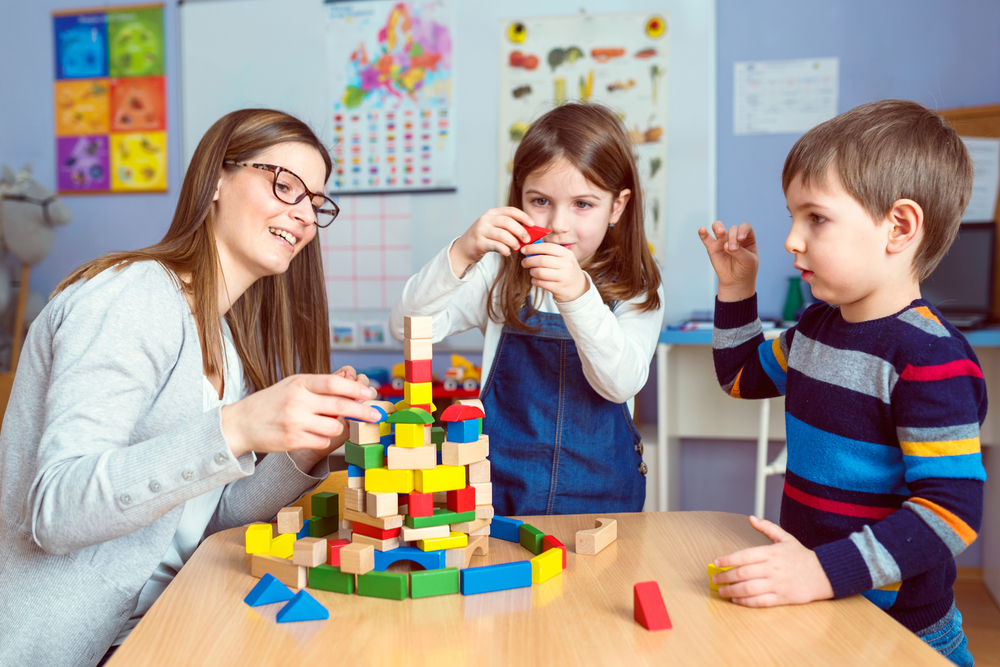Logical thinking Normal Worksheets for 3-Year-Olds
5 filtered results
-
From - To
Discover our engaging collection of logical thinking worksheets designed specifically for 3-year-olds! These fun and interactive resources help nurture essential cognitive skills while encouraging critical thinking, problem-solving, and early mathematics abilities. With a variety of colorful and age-appropriate activities, young learners will enjoy sorting, matching, and classifying as they explore the joyful world of logic. Perfect for at home or in the classroom, our worksheets support your child's growth while making learning a delightful adventure. Explore our printable options and watch your little ones develop their logical reasoning skills in a playful setting. Start fostering their curiosity today!
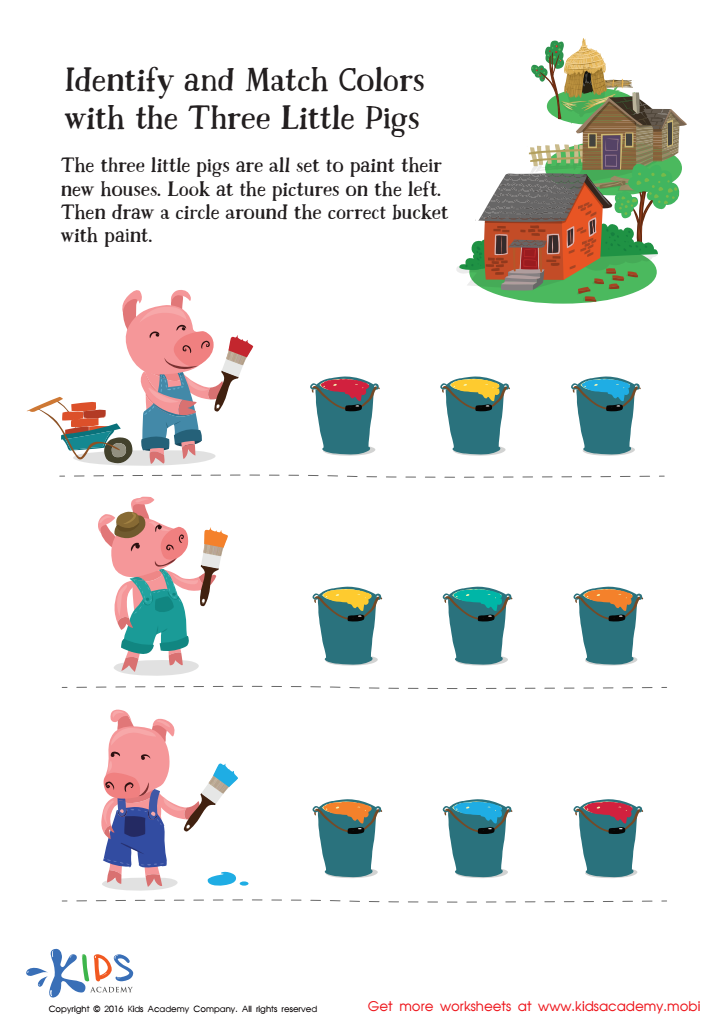

Fairy Tale Worksheet: Identify and Match Colors with Three Little Pigs
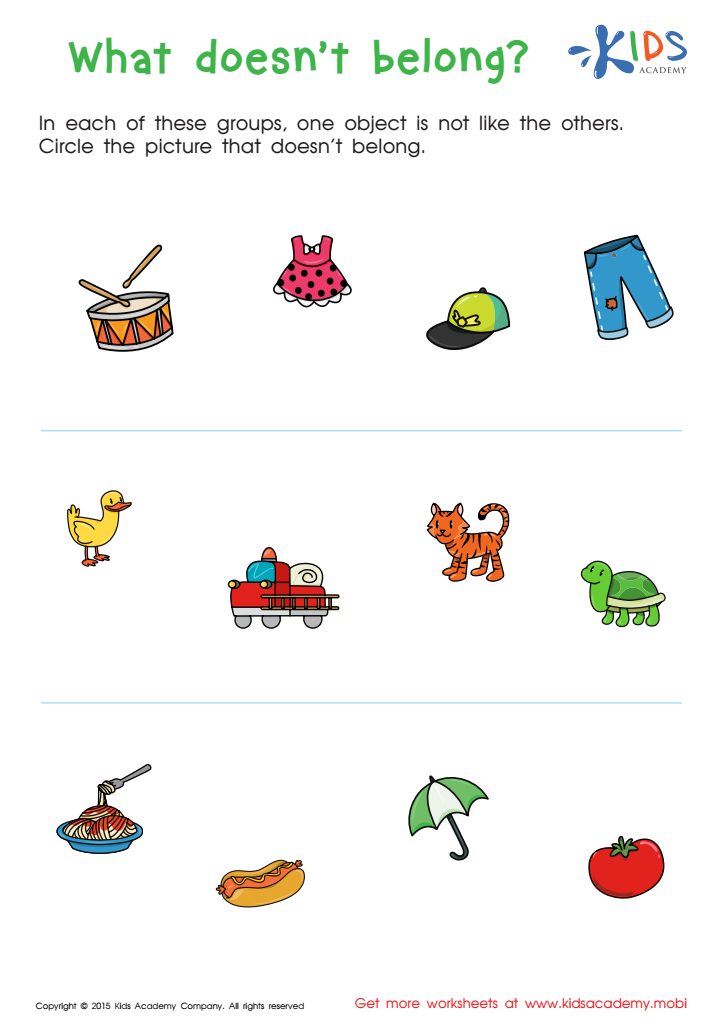

First Words: What Doesn't Belong Worksheet
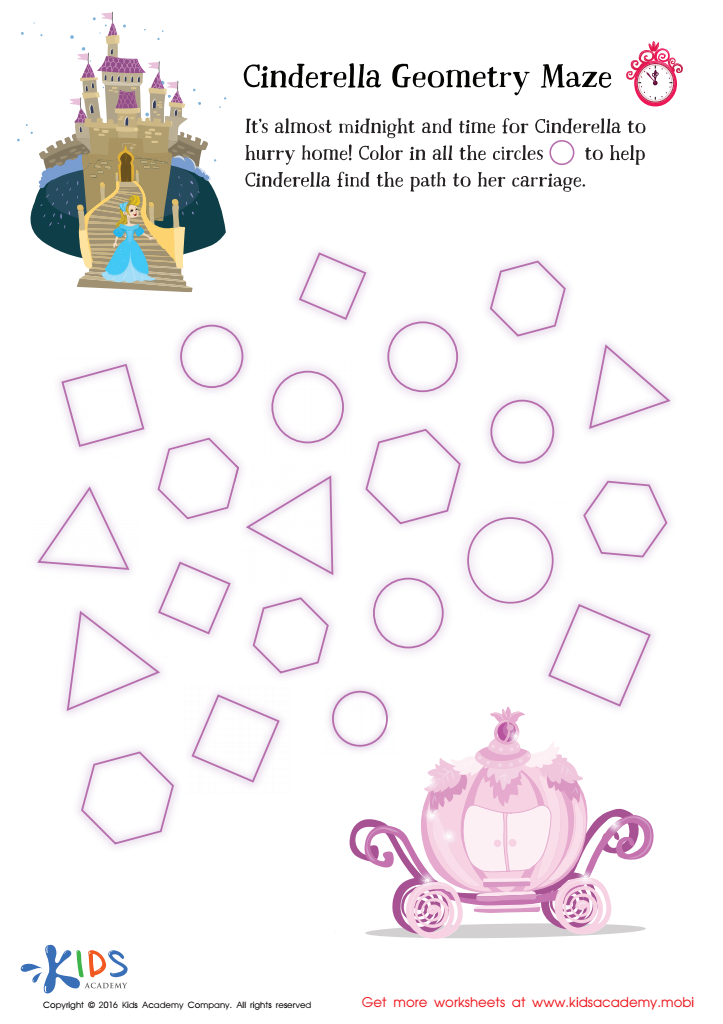

Cinderella Geometry Maze Worksheet
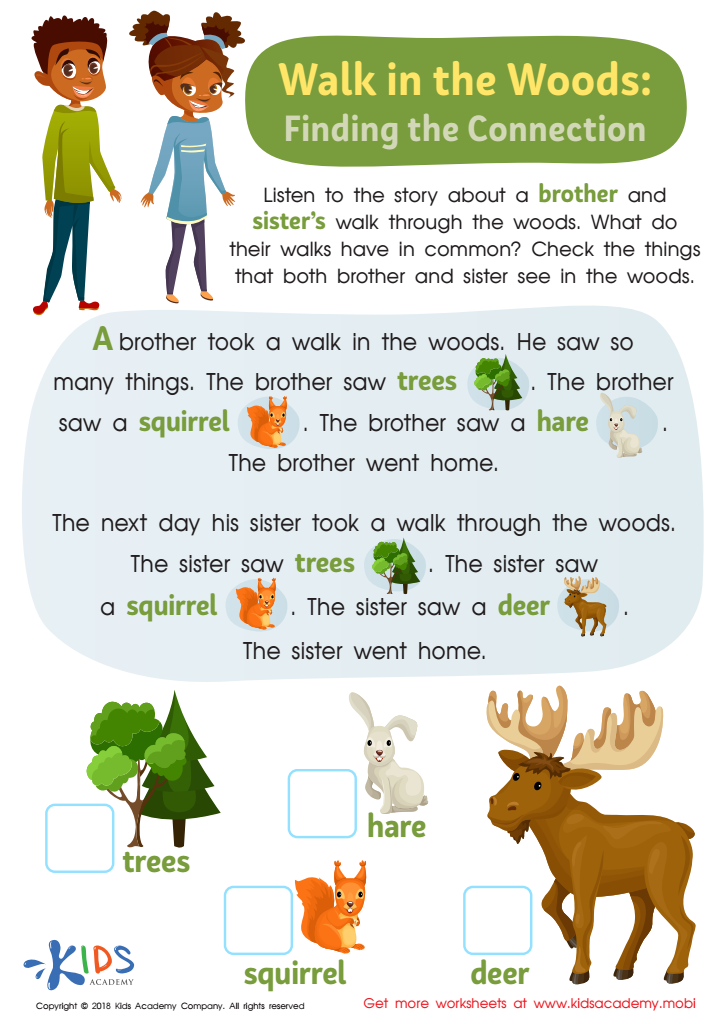

Walk In the Woods: Finding Connections Worksheet
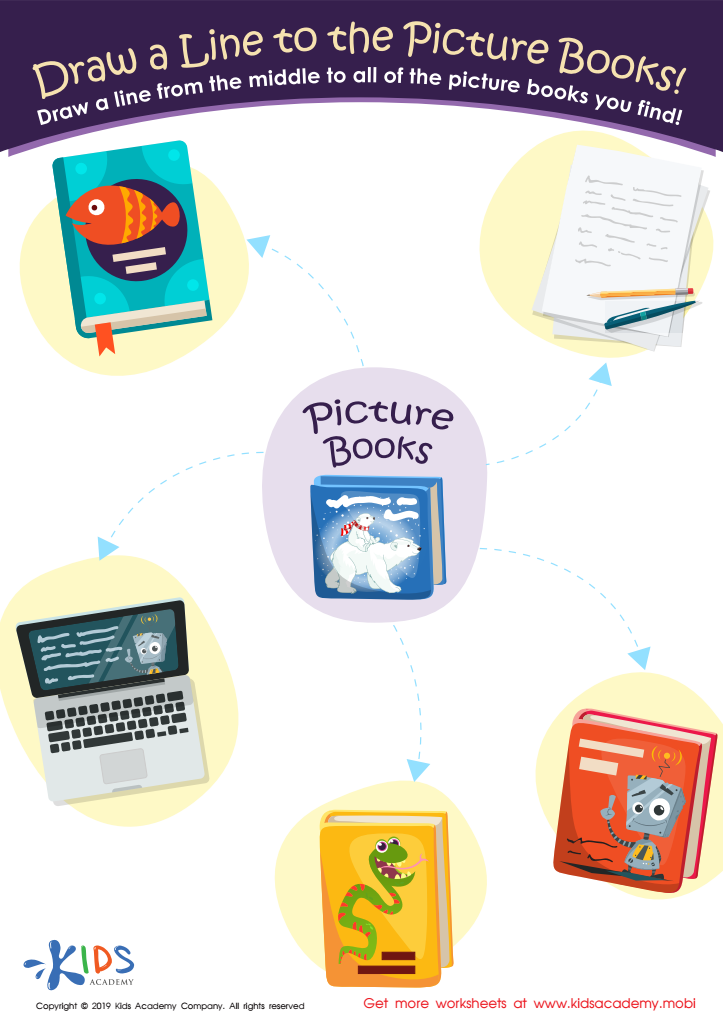

Draw a Line to the Picture Books Worksheet
Logical thinking is a fundamental cognitive skill that lays the groundwork for problem-solving, decision-making, and critical analysis. At three years old, children are at a prime developmental stage for cultivating these skills. Parents and teachers should prioritize the development of logical thinking in this age group because it enhances their ability to understand and connect concepts in their world.
During this age, children begin to make observations about cause and effect, categorize objects, and recognize patterns. Engaging in activities that stimulate logical thinking—like puzzles, block building, and simple reasoning games—encourages curiosity and creativity. It also promotes language development, as children learn to articulate their reasoning and describe their thought processes.
Fostering logical thinking benefits social interactions and emotional intelligence, as children learn to anticipate outcomes and understand different perspectives. Furthermore, these skills are not only foundational for later academic success but also crucial for everyday life skills and navigating social situations. By focusing on nurturing logical thinking in early childhood, parents and teachers can help cultivate confident, independent thinkers ready to tackle challenges throughout their education and beyond. In essence, supporting this cognitive development is an investment in a child’s future growth and success.
 Assign to My Students
Assign to My Students







